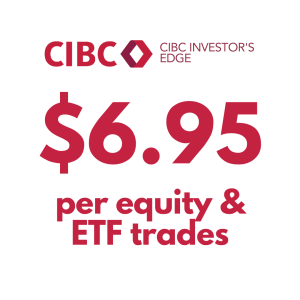
Bitcoin was once exclusively associated with shady dealings, until it had an unexpected boom in 2010. Since then, cryptocurrencies have entered the public eye and it is a heavily debated topic in the finance and tech world. Today, you can use it to pay for various things, even your Starbucks latte. Are you still not convinced? It’s easy to be skeptical. First, crypto’s volatility is enough to make traditional investors and regular spenders squirm. Then, you have new crypto scams popping up everywhere. In this article, we’ll explore the legitimateness of Bitcoin and other cryptocurrencies in an attempt to answer the question: Is Bitcoin legal in Canada?

Table of contents
Just because Starbucks allows crypto payments, does that mean you can use it anywhere? Well, legal and legal tender are two different things. We’ll cover Bitcoin’s legality, tax status, and more about crypto with this guide.
What is Bitcoin?
Bitcoin is a digital currency (better known as cryptocurrency) created with computer algorithms through a blockchain. The blockchain is a digital, decentralized ledger system (as opposed to a centralized one) where developers can mine cryptocurrency without a bank or other third party.
An anonymous developer with the pen name Satoshi Nakamoto welcomed Bitcoin into the world in 2009. He introduced a “proof-of-work” mechanism that stops anyone from using the same Bitcoin currency twice. Crypto miners or creators secure each block after solving a mathematical puzzle, adding a new, verifiable transaction to the ledger. After Bitcoin, more developers created similar currencies like Ethereum, Monero, and Dogecoin.
You can buy cryptocurrency coins on an online exchange that resembles the stock market. All you need is a digital wallet to store your cryptocurrency. In general, crypto is welcomed among libertarian mindsets for its ostensible autonomy, unrivaled by banks.
In summary, Bitcoin and other cryptocurrency coins are digital forms of payment you can use to purchase goods and services — from those who accept them as payment.
CIBC Investor’s Line Offer
Up to $6.95 per online stock or ETF trade. Plus, there’s no minimum account balance.
Is Bitcoin Legal in Canada?
Yes, Bitcoin is legal in Canada. This means you can buy and sell it as you wish. Plus you can use it to purchase and sell goods and services. However, the Canadian government recommends you tread lightly if you decide to invest. For one, there’s no “return policy” once you complete a transaction. Second, the world of crypto is fraught with fraudsters. Your crypto assets aren’t insured by the Canada Deposit Insurance Corporation (CDIC), either. Lastly, the market is still really volatile which means it’s a high risk investment to own crypto.
Remember, just because Bitcoin is decentralized, that doesn’t mean it’s not documented. Canada decided to start taxing cryptocurrency profits back in 2014. While the rules around Bitcoin and cryptocurrency taxation are in their infancy, you should still comply with the regulations to avoid issues with the CRA down the road.
But what about the rest of cryptocurrency?
Is cryptocurrency legal in Canada?
Yes, cryptocurrency is legal in Canada. Any business owner can accept and remit cryptocurrency, though few do in practice. In addition, individuals can use it as they please. Canadian banks don’t offer cryptocurrency accounts, forcing you to limit your transactions to online exchanges. You can’t use cryptocurrency to pay taxes or most debts like mortgages, personal loans, and student loans. Even if you have and use cryptocurrency, you would still need a bank account to manage your day to day expenses.
Cryptocurrency is considered a security — an investment that can bring profits and therefore is taxable (more on that later). Most people buy cryptocurrency on registered exchanges like Coinbase or Binance. But how does a cryptocurrency coin come into existence?
Related Reading: Centralized vs Decentralized Exchanges
Is Bitcoin mining legal in Canada?
Remember the proof of work concept we discussed? Each mathematical equation solved to create a new block is part of a process called mining. It’s just another word for creation. So when you mine Bitcoin, you create it. Bitcoin mining is legal in Canada.
Miners are usually highly skilled developers or other technical professionals since the mathematical equations are quite complicated. But technically, anyone can mine Bitcoin as long as they have the right equipment and knowledge. Keep in mind that the hardware is expensive, ranging anywhere from $2,000 to $20,000. Plus, most miners take 30 days to mine a single Bitcoin.
The reward? 6.25 Bitcoin, which gets halved every year. That means a Bitcoin miner can make around $175,000 for mining one block. Naturally, Bitcoin mining has become a trendy side gig.
But despite the 6.25 Bitcoin block reward, miners face significant obstacles. First, there’s the power. The Congressional Research Service estimates Bitcoin’s global power requirement is between 2,500 and 7,670 megawatts. To put things into perspective, that was Poland’s entire solar power capacity last year.
But back to legality — anyone is free to legally mine Bitcoin in Canada. The only foreseeable issues are energy restrictions. You’ll face hefty energy bills, and there’s talk about limiting energy allocation for miners to avoid environmental stress. Quebec limits energy to 300 MW for Bitcoin miners.
Now, you can also mine cryptocurrency online through cloud mining sites. This reduces the energy output and allows you to rent computing power from a mining company.
Of course, miners are subject to tax implications as well, but it depends on how often they mine. Once in a while is considered a hobby — every day is considered a business. And yes, the CRA does consider funds earned from Bitcoin mining taxable income, but more on that later.
Related Reading: What is the Best Blockchain Stock?
CIBC Investor’s Line Offer
Up to $6.95 per online stock or ETF trade. Plus, there’s no minimum account balance.
Is it illegal to use Bitcoin in Canada?
No, Bitcoin is perfectly legal to use, exchange and sell in Canada. Just be sure to track the activity in your account and pay the appropriate taxes on any gains or losses.
Is bitcoin legal tender in Canada?
Legal tender is a form of payment that a business, financial institution, and other debtors must accept as payment. The Canadian dollar in the form of bank notes (cash) and coins are considered legal tender. Currently, Bitcoin and other cryptocurrencies aren’t considered legal tender in Canada.
Businesses can choose to accept cryptocurrencies as payment, but they don’t have to. Even if they do, it’s still not considered legal tender in Canada. However, that’s not the case everywhere. El Salvador was the first country to make Bitcoin legal tender, forcing businesses to accept it as payment. While El Salvador is ahead of the curve, it may take a while for Canada to make cryptocurrencies legal tender — especially with all the uncertainty surrounding crypto at this time.
How can I buy Bitcoin legally in Canada?
You can buy Bitcoin or other cryptocurrencies by opening an account with an exchange that offers crypto assets. Coinbase, Binance and Wealthsimple are all popular options. Once you’ve opened your account and created a digital wallet, you’ll have to fund it with cash. Then, you can buy, trade and sell Bitcoin and other cryptocurrencies within your account.
Related Reading: Types of Investment Accounts in Canada
How does Bitcoin work in Canada?
Since Bitcoin isn’t legal tender, but is legal to own and trade, you won’t always hear of it in regular day-to-day business. But certain businesses accept it, like Birks and Matrix Mortgage. Apart from boutique businesses, can you spend your Bitcoin on your biggest expenses? Let’s take a closer look below.
Do Canadian banks accept Bitcoin? What about other cryptocurrencies?
The answer continues to develop. While Canadian banks don’t hold chequing and savings accounts with cryptocurrency, many have become more “crypto-friendly” in recent years. Hold your horses, though. It’ll be a long time before the Big Five banks start letting you make mortgage payments with crypto.
Many Canadian banks allowed you to purchase cryptocurrency with your credit card until 2018 (at least for TD and RBC). Although, you won’t be able to access a cryptocurrency exchange or purchase coins through your bank, either. However, most allow you to purchase coins through your debit card or an e-transfer. In addition, you can transfer cash from your bank into your external crypto account to begin buying and selling.
How about student loans, mortgages, and credit card payments? You won’t be able to use Bitcoin or cryptocurrency to pay for those at this time.
Related Reading: Best Cryptocurrency ETFs in Canada for 2022
Is Bitcoin taxable in Canada?
Yes, the Canadian government officially made Bitcoin taxable in 2014, including most coins in the Income Tax Act. You would need to translate your cryptocurrency value into its Canadian-dollar equivalent to declare any income.
The CRA sees cryptocurrency as commodities. If you gain profits or losses from them, you must report it to the CRA and pay tax on it. In this circumstance, you would be required to pay capital gains tax because it’s considered investment income. Remember, capital gains tax only applies when you sell the investment and the gain or loss becomes “realized”. Depending on how you use it, the CRA might view your crypto investing as business activities, subjecting you to different taxes. If you trade or mine cryptocurrency on a full-time basis (similar to a day trader) then any profits you earned would be considered business income, not investment income.
Similarly, you’re obligated to pay appropriate GST and HST when you use cryptocurrency to purchase goods and services. You’ll also face separate rules for crypto trading. Currency trading with crypto is subject to barter transaction rules. Quickbooks does a good job of describing it here.
CIBC Investor’s Line Offer
Up to $6.95 per online stock or ETF trade. Plus, there’s no minimum account balance.
The CRA recommends keeping the following records if you utilize cryptocurrency:
- Transaction dates
- Receipts of purchases and transfers
- Accounting, legal, and exchange records
- Notes on each transaction (including seller/buyer’s name and address)
In addition, they recommend you keep the following records if you mine cryptocurrency:
- Software and hardware information
- Receipts for equipment (miners)
- Mining pool details
- Power cost receipts and other mining expenses
Bottom line? Cryptocurrency might be unique, but it’s not invisible. Every profit is taxable, just like other forms of currency and investments.
Related Reading: Tax Season In Canada: What You Need To Know For 2022
Using Crypto in Canada
No matter your goal with crypto, proceed with caution. You’re not protected by the same insurance and safety nets as legal tender and regular bank accounts. Plus, you’re likely to come across more than one scam in your crypto endeavors. Be wary of any website that promises you large returns and doesn’t feel transparent. Always read reviews, too.
Read More: Consumer Proposal vs Bankruptcy: What’s the difference?

